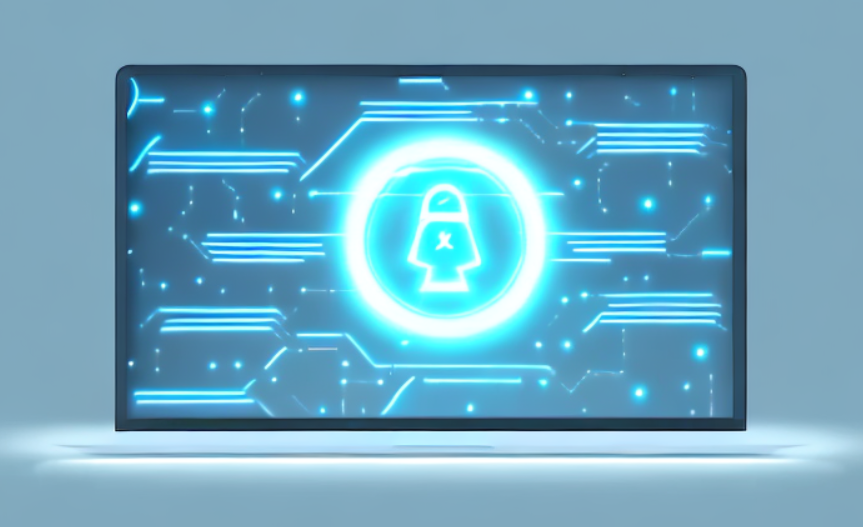Strategies for Successful Cyber Recruitment
13 Jun, 20235
Contents
- Understanding the Cyber Recruitment Landscape
- The growing demand for cybersecurity professionals
- Identifying key skills and qualifications
- The role of certifications and training
- Building an Effective Cyber Recruitment Strategy
- Establishing clear job requirements and expectations
- Creating an attractive employer brand
- Leveraging technology and tools for recruitment
- Sourcing Top Cybersecurity Talent
- Utilising niche job boards and platforms
- Networking and engaging with the cybersecurity community
- Partnering with educational institutions and training programs
- Streamlining the Interview and Selection Process
- Designing a comprehensive interview process
- Assessing technical skills and cultural fit
- Involving key stakeholders in the decision-making process
Strategies for Successful Cyber Recruitment
In today's digital age, cybersecurity has become a top priority for businesses of all sizes. With the increasing threat of cyber attacks, it's important to have a strong and capable cybersecurity team in place. However, finding and recruiting top cybersecurity talent can be a challenge. In this article, we'll discuss strategies for successful cyber recruitment that can help you build a strong cybersecurity team.
Understanding the Cyber Recruitment Landscape
The first step to successful cyber recruitment is understanding the landscape. Cybersecurity is a rapidly growing field, with organisations across industries looking to hire skilled professionals to protect their networks and data. As the number of cyber attacks continues to rise, so does the demand for cybersecurity professionals.
It's important to note that cybersecurity is not just a concern for large corporations. Small and medium-sized businesses are also vulnerable to cyber attacks and need to invest in cybersecurity measures. As a result, there is a growing demand for cybersecurity professionals across all industries and business sizes.
The Growing Demand for Cybersecurity Professionals
The demand for cybersecurity professionals is at an all-time high. According to a recent study, there are currently over 3 million open cybersecurity positions worldwide. This means that businesses have to compete to attract and retain top talent.
One of the reasons for the high demand is the constantly evolving nature of cyber threats. As technology advances, so do the methods used by cyber criminals to breach networks and steal data. This means that cybersecurity professionals need to stay up-to-date with the latest trends and technologies to effectively protect their organisations.
Identifying Key Skills and Qualifications
When recruiting for cybersecurity positions, it's important to have a clear understanding of the skills and qualifications you're looking for. Some of the key skills and qualifications to look for include knowledge of networking and security protocols, experience with security tools and technologies, and certifications such as the CISSP or CISM.
However, it's important to note that technical skills are not the only important factor when hiring for cybersecurity positions. Soft skills such as communication, problem-solving, and teamwork are also crucial. Cybersecurity professionals need to be able to effectively communicate with non-technical stakeholders and work collaboratively with other departments to implement effective security measures.
The Role of Certifications and Training
Certifications and training can be important indicators of a candidate's skill set and level of commitment to the cybersecurity profession. Look for candidates who have completed cybersecurity certifications or training programs, as these can demonstrate a commitment to professional development and continuous learning.
However, it's important to note that certifications and training should not be the only factor when making hiring decisions. Practical experience and a demonstrated ability to apply knowledge in real-world situations are also important considerations.
In addition to formal certifications and training programs, there are also a variety of online resources and communities available for cybersecurity professionals to continue their education and stay up-to-date with the latest trends and technologies.
Building an Effective Cyber Recruitment Strategy
Now that you understand the landscape and the skills and qualifications you're looking for, it's time to build an effective cyber recruitment strategy. This strategy should include clear job requirements and expectations, an attractive employer brand, and the use of technology and tools to streamline the recruitment process.
One important aspect of building an effective cyber recruitment strategy is to establish clear job requirements and expectations. This can help ensure that you attract the right candidates for the job and weed out those who may not be qualified. When writing job descriptions, be specific about the skills and experience you're looking for. This can include technical skills, such as experience with specific programming languages or cybersecurity tools, as well as soft skills like communication and teamwork.
In addition to outlining job requirements, it's important to set clear expectations about job duties and performance. This can help ensure that new hires are a good fit for the role and can help prevent turnover down the line. Consider outlining specific performance metrics or goals that new hires will be expected to meet, as well as any potential career growth opportunities.
Creating an Attractive Employer Brand
Another key aspect of building an effective cyber recruitment strategy is to create an attractive employer brand. This can help you stand out from other organisations in the industry and attract top talent. Consider highlighting your commitment to cybersecurity and your company culture in job postings and on your website.
One way to build your employer brand is to showcase your company's involvement in the cybersecurity community. This can include sponsoring events or conferences, participating in industry groups, or contributing to open-source projects. By demonstrating your commitment to cybersecurity, you can attract candidates who are passionate about the field.
Another way to build your employer brand is to make sure it's visible on social media and other online platforms. Consider creating a dedicated careers page on your website, and make sure your job postings are easy to find and apply to. You can also use social media to showcase your company culture and highlight employee success stories.
Leveraging Technology and Tools for Recruitment
Finally, it's important to leverage technology and tools to streamline the recruitment process. This can help you save time and resources, while also reaching a wider pool of candidates. One technology to consider is an applicant tracking system, which can help you organise and manage candidate information. This can include resumes, cover letters, and interview notes.
Another technology to consider is video interviews. This can be particularly useful for reaching candidates who are geographically distant or who may have scheduling conflicts. Video interviews can also help you get a better sense of a candidate's personality and communication skills.
Overall, building an effective cyber recruitment strategy requires a combination of clear job requirements, an attractive employer brand, and the use of technology and tools. By taking these steps, you can attract top talent and build a strong cybersecurity team.
Sourcing Top Cybersecurity Talent
Now that you have a clear strategy in place, it's time to start sourcing top cybersecurity talent. Cybersecurity is a crucial aspect of any organisation's operations, and finding the right talent can make all the difference in keeping sensitive data secure. In this expanded version, we will explore some additional methods to source top cybersecurity talent.
Utilising Niche Job Boards and Platforms
One way to find top cybersecurity talent is by utilising niche job boards and platforms. These platforms can help you reach a targeted audience of cybersecurity professionals who are actively seeking new opportunities. Look for boards and platforms that specialise in cybersecurity or related fields, such as information technology or data security. Some popular job boards and platforms for cybersecurity professionals include CyberSN, Dice, and CyberSecJobs.
When posting a job on these platforms, make sure to include a detailed job description that outlines the skills and qualifications you are looking for. This will help attract the right candidates and ensure that you are not inundated with unqualified applicants.
Networking and Engaging with the Cybersecurity Community
Networking with the cybersecurity community can be a great way to find top talent. Attend industry events and conferences, participate in cybersecurity forums, and reach out on social media to connect with professionals in the field. By engaging with the cybersecurity community, you can gain insights into the latest trends and technologies in the industry, as well as build relationships with potential candidates.
One way to network with cybersecurity professionals is by attending industry events and conferences. These events bring together experts from around the world to discuss the latest trends and technologies in cybersecurity. By attending these events, you can meet potential candidates, learn about the latest developments in the field, and make valuable connections.
You can also participate in cybersecurity forums and online communities. These forums provide a platform for cybersecurity professionals to share knowledge and collaborate on projects. By participating in these forums, you can build relationships with potential candidates and gain insights into the latest trends and technologies in the industry.
Partnering with Educational Institutions and Training Programs
Partnering with educational institutions and training programs can help you identify and recruit students and graduates with the right skills and qualifications. Offer internships or other opportunities for students to gain real-world experience in cybersecurity. This can help you identify promising candidates early on and give them the opportunity to gain valuable experience in the field.
When partnering with educational institutions and training programs, look for programs that specialise in cybersecurity or related fields, such as computer science or information technology. These programs will likely have a pool of talented students and graduates who are interested in pursuing a career in cybersecurity.
Overall, sourcing top cybersecurity talent requires a combination of different strategies. By utilising niche job boards and platforms, networking with the cybersecurity community, and partnering with educational institutions and training programs, you can find the right candidates to help keep your organisation's sensitive data secure.
Streamlining the Interview and Selection Process
The final step to successful cyber recruitment is streamlining the interview and selection process. This involves designing a comprehensive interview process, assessing technical skills and cultural fit, and involving key stakeholders in the decision-making process.
Designing a Comprehensive Interview Process
A comprehensive interview process can help ensure that you find the right candidate for the job. This might involve multiple interview rounds, technical assessments, and behavioral interviews. A technical assessment allows you to evaluate a candidate's technical skills and knowledge. This can be done through a written test or a practical assessment. A behavioral interview assesses a candidate's personality, work style, and communication skills. This type of interview can help you determine if the candidate is a good fit for your organisational culture.
Another important aspect of a comprehensive interview process is providing candidates with a clear understanding of the job requirements and responsibilities. This can be done through a detailed job description, as well as a list of skills and qualifications necessary for the job. Providing candidates with this information can help ensure that they are prepared for the interview process and understand what is expected of them.
Assessing Technical Skills and Cultural Fit
Assessing both technical skills and cultural fit is important when recruiting for cybersecurity positions. Look for candidates with the right technical skills and experience, but also evaluate their communication skills, teamwork abilities, and overall fit with your organisational culture. Cultural fit is particularly important in cybersecurity, as it is a field that requires collaboration and communication between team members.
When assessing technical skills, it is important to keep in mind that cybersecurity is a rapidly evolving field. Look for candidates who demonstrate a willingness to learn and stay up-to-date with the latest technology and industry trends. This can be assessed through questions about their professional development and continuing education.
Involving Key Stakeholders in the Decision-Making Process
Involving key stakeholders in the decision-making process can help ensure that new hires are a good fit for the organisation. This might involve input from managers, HR, and other team members. When involving key stakeholders, it is important to establish clear criteria for evaluating candidates and to communicate these criteria to all involved parties.
Additionally, involving key stakeholders can help ensure that the new hire is integrated into the team and has access to the resources and support they need to be successful. This can involve assigning a mentor or buddy to the new hire, as well as providing training and development opportunities.
Conclusion
Building a strong and capable cybersecurity team is essential for protecting your organisation's networks and data. By understanding the cyber recruitment landscape, building an effective recruitment strategy, sourcing top talent, and streamlining the interview and selection process,
For further support in finding and retaining the best cybersecurity professionals for your team, please don't hesistate to get in touch to leanr how Cybernetic can help with your cyber recuirtment requirement.



